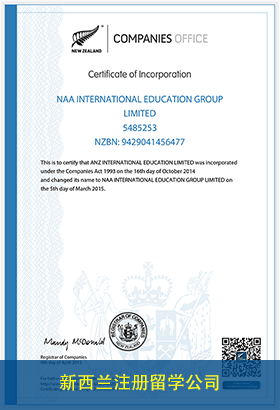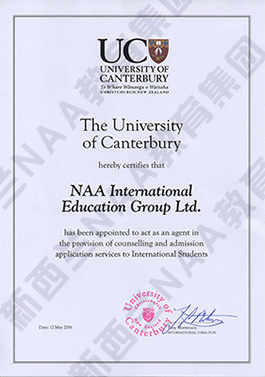坎特伯雷大学/The University of Canterbury
- 课程名称:
工程Bachelor of Engineering with Honours in Civil Engineering
- 课程级别:学士学位/Bachelor's Degree(7级)
- 课程代码:
- 学费:$41,000 NZD Per Year
- 学分:
- 开学时间:Expected February-2019
- 申请截止:
- 授课校区:The University of Canterbury
- 课程信息:
- five compulsory courses and
- four further Intermediate Year courses which vary depending on which Engineering discipline you want to specialise in. The Intermediate Year is followed by three Professional Years of study in one of the Engineering disciplines. Entry to the Professional Years is limited and based on your performance in the first year(s). These years will focus on the relevant knowledge and skills you will need in your chosen discipline. During your degree you will complete 100 days (800 hours) of practical work placement.
Course details
Summary
Civil engineers design, construct, project manage, and commission a wide range of facilities and infrastructure such as buildings, bridges, towers, dams, roads and railways, pipe networks and treatment plants. These facilities provide people with a reliable, safe, sustainable and modern environment to live in.
Electric power depends on civil engineers for the design and construction of dams, canals and transmission towers. Many towns and cities are protected against flooding or the effects of fire and earth quakes by infrastructure designed and constructed by civil engineers.
Civil engineers have responsibility for managing people, equipment, resources, time and money. Communication skills are vital, as all professional engineers need to effectively disseminate complex information to people of diverse backgrounds, by providing detailed engineering reports, presentations and taking part in public hearings and inquiries.
This is a broad field, and students may take courses to focus on a more specific area of civil engineering during their professional years of study to suit their interests.
Qualification structure and duration
The first year of the degree is called the Engineering Intermediate Year and comprises nine courses (120 points) which is made up of:
Career opportunities
There are excellent career opportunities for civil engineers, with a strong demand for graduates in New Zealand and around the world in a diverse range of fields.
Most new graduates are employed by consultants (who design and manage), contractors (who build and maintain) or central, regional and local government (who develop and manage the infrastructure of countries, cities and communities).
Many civil engineers become experts in a specialised area of civil engineering such as structural, water, geotechnical, transportation, fire or environmental fields.
Some UC civil engineering graduates go on to run their own companies, enter into partnerships, or become researchers for government agencies or business.
Entry criteria
NCEA entrance requirements - You should aim to have at least: 14 credits in Level 3 maths or calculus including both differentiation and integration; 14 credits in Level 3 physics; 14 credits in Level 3 chemistry. 18 credits are strongly recommended in all subjects.
International Baccalaureate (IB) Diploma -You will need to have: IB Score of 26 points; minimum of 4 HL (or 6 SL) in each of math's and physics (HL is recommended); minimum of 4 HL (or 6 SL) in chemistry.
Cambridge International Examination (CIE) - You will need to have: CIE Score of 140 points; maths and physics - D grade or better at A level or A in AS level; chemistry - D grade or better at A level or A in AS level.
Alternatively the Intermediate can be completed in more than one year (maximum of two years) with a minimum requirement of: CIE Score of 140 Points; D Grade at A-Level or C Grade at AS-Level in Mathematics; D Grade at A-Level or C Grade at AS-Level in Physics; preferably C Grade at AS-Level in Chemistry (discipline specific).
If you have not studied one or more of the required subjects, or did not achieve enough credits, but have University Entrance, you may consider an introductory pathway such as: taking a Head start summer course to catch up or; take an introductory course in specific Science subjects to start with (eg, MATH 101, PHYS 111 and CHEM 114). You could then take the Intermediate Year courses in Semester 2 and over summer, or do an extra year of study.
Other English language requirements: TOEFL PBT with a minimum score of 550 and TWE with a minimum score of 4.5; CCEL EAP Level 2 with a minimum C+ grade; CAE or CPE minimum score of 169 with at least 162 in reading, writing, listening and speaking; Pearson Test of English (Academic) - PTE with an overall score of 57 and no PTE communicative skills score below 50.
= 新西兰小学申请问题集 =







